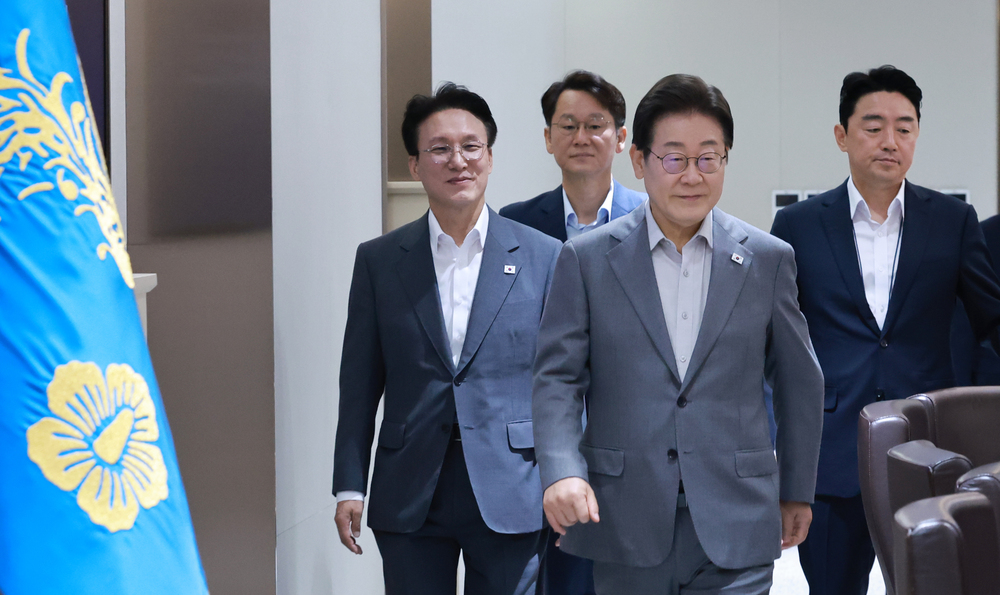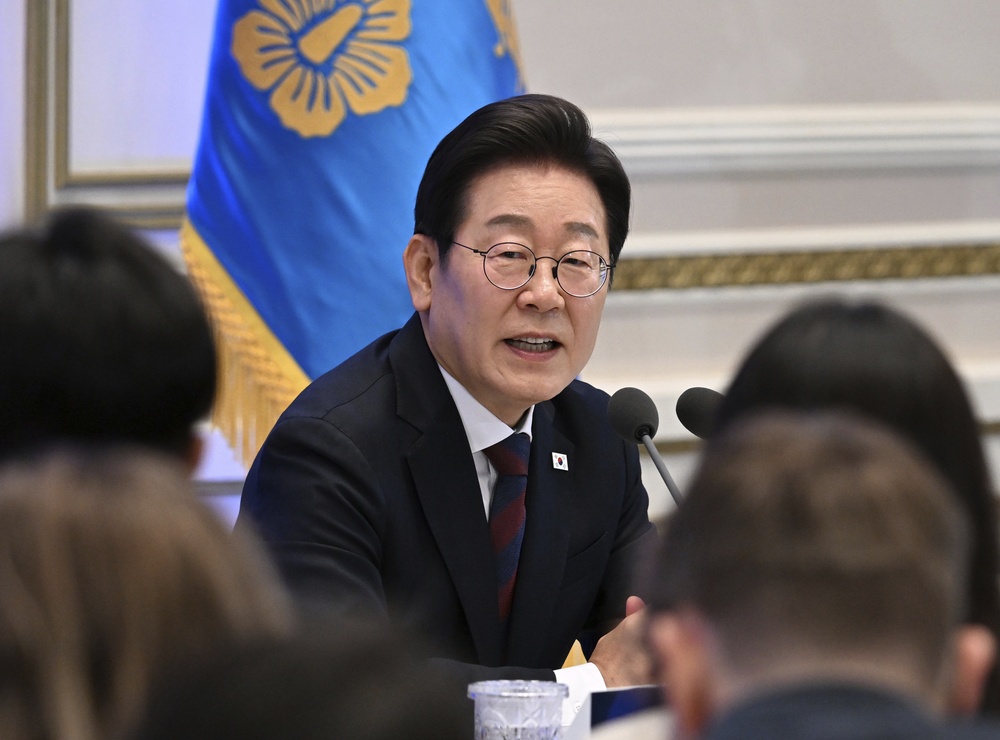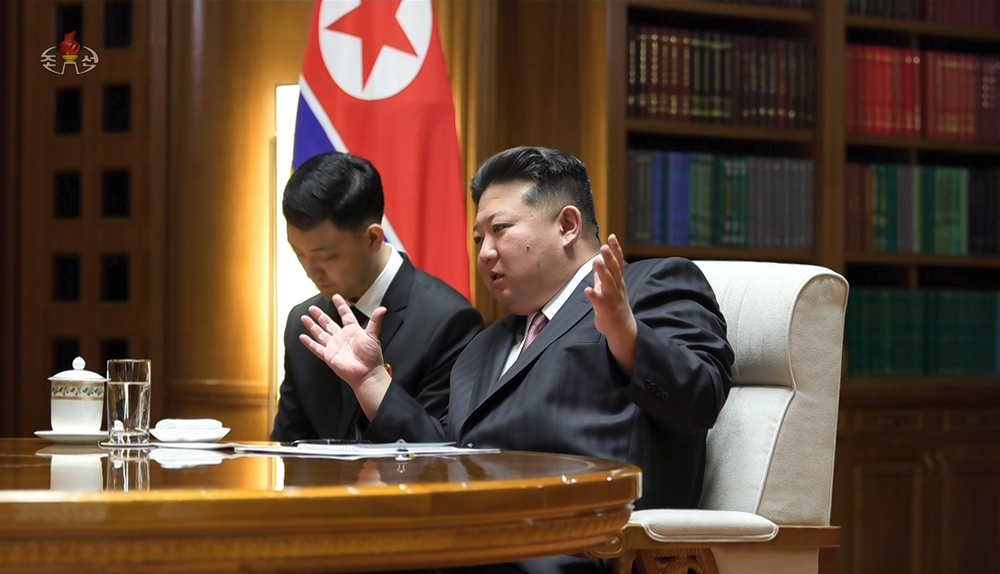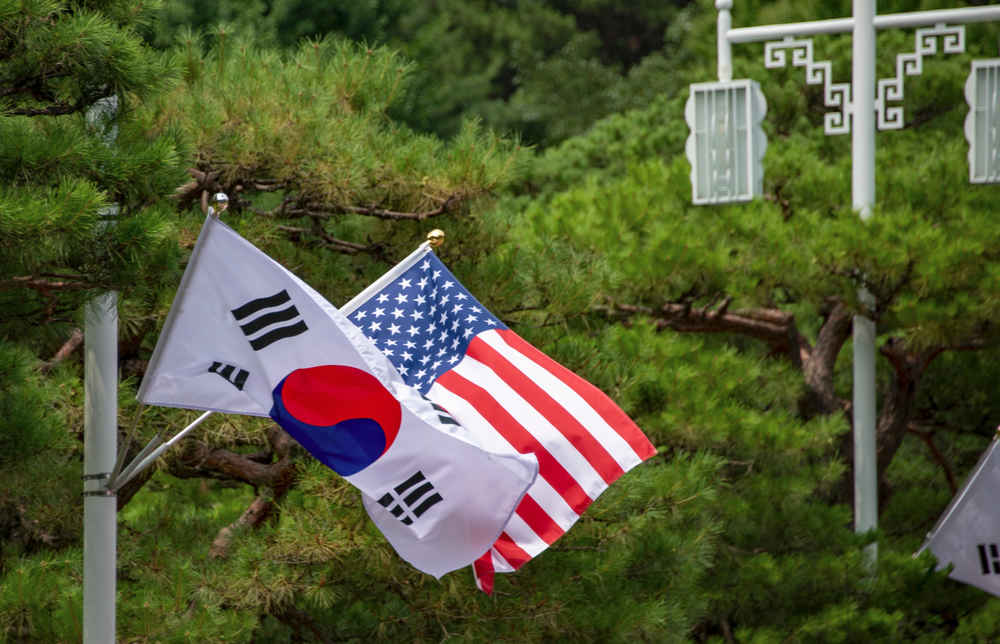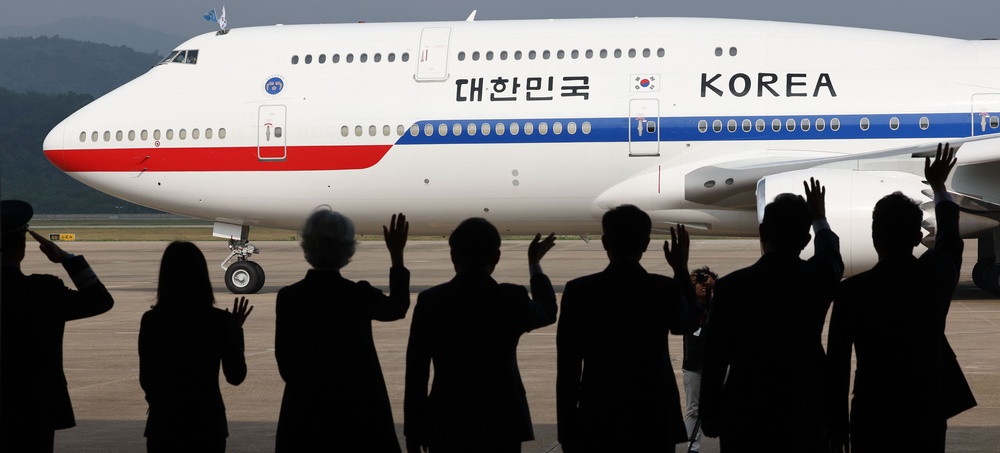- #South Korea
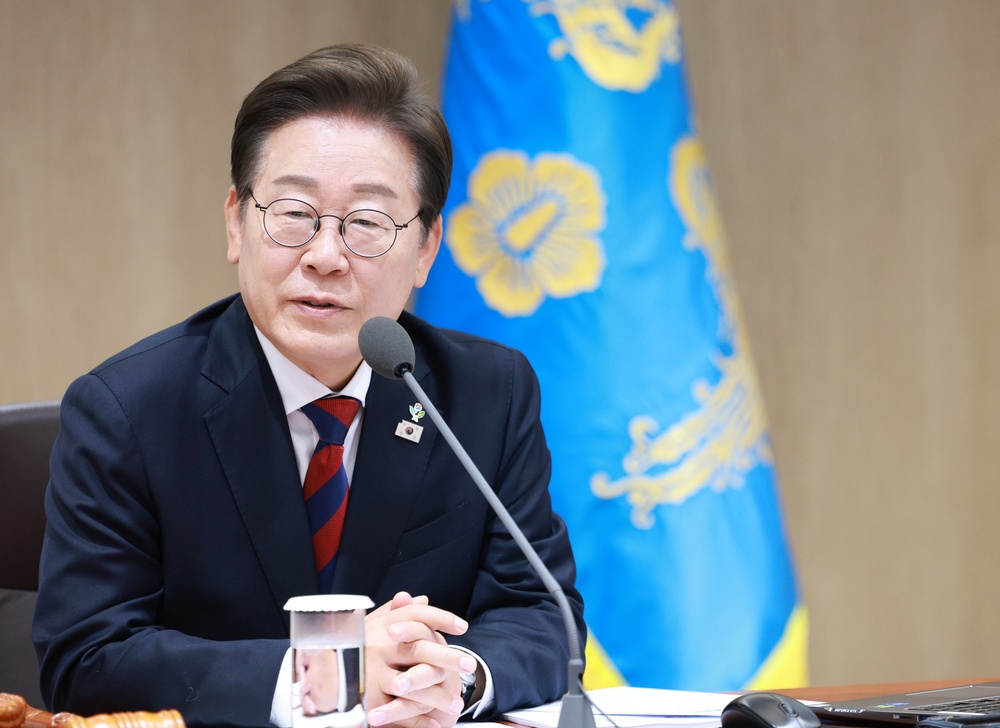
- South Korea's democratic trajectory has
been marked by a persistent challenge that undermines its strategic position on
the global stage: the absence of policy continuity across successive
administrations.
- As the Lee Jae-myung administration takes
office, there exists a critical opportunity to break this destructive cycle and
establish policy frameworks that can transcend partisan politics.
- South Korea's ability to maintain its
hard-won position as a prosperous democracy and key regional power depends on
developing strategic coherence across successive administrations.
South
Korea's democratic trajectory has been marked by a persistent challenge that
undermines its strategic position on the global stage: the absence of policy
continuity across successive administrations. This structural weakness stems
from the deeply entrenched nature of political party rivalries, where
ideological divisions create fundamental disagreements on critical national
security and foreign policy issues. The opposing political camps have
consistently diverged on approaches to North Korea engagement, the management
of the US-ROK alliance, bilateral relations with Japan, and in recent decades, the
strategic calculus regarding economic dependency on China. These divisions have
prevented the emergence of a sustainable, bipartisan consensus on long-term
national strategy, leaving South Korea vulnerable to policy whiplash with each
change in government.
From Kim
Young-sam's presidency to Yoon Suk-yeol's administration, the past 30 years demonstrates
a troubling pattern of widening divergence rather than convergence on these
fundamental issues. While the US-ROK alliance has remained the most consistent
element of South Korean foreign policy, even this cornerstone relationship has
experienced fluctuations in how political expectations are managed and how best
to coordinate responses to North Korean provocations. The pendulum has swung
dramatically between administrations that prioritize engagement with North
Korea and those that emphasize deterrence and containment of military threats.
This inconsistency has imposed significant costs on South Korea's strategic
position, both in terms of maintaining stability on the Korean Peninsula and in
preserving trust among major stakeholders, including the US.
The lack of
policy continuity has been particularly damaging in South Korea's approach to
North Korea. From Kim Young-sam's mixed approaches to the dramatic swings
between the Sunshine Policy under Kim Dae-jung and Roh Moo-hyun, followed by
the hardline stance of Lee Myung-bak and Park Geun-hye, and then Moon Jae-in's
renewed engagement efforts, South Korea has failed to develop a coherent,
sustainable framework for dealing with its northern neighbor. This policy
volatility has not only confused international partners but has also provided
North Korea with opportunities to exploit these inconsistencies for its own
strategic advantage.
As the Lee
Jae-myung administration takes office, there exists a critical opportunity to
break this destructive cycle and establish policy frameworks that can transcend
partisan politics. Several key policy structures developed in recent years
deserve continuation and institutionalization, regardless of political changes.
The Nuclear Consultative Group (NCG) with the United States represents one such
mechanism that should be preserved and strengthened. While the specific focus
of discussions may evolve—perhaps shifting from potential nuclear sharing
arrangements to enhancing transparency regarding US extended nuclear deterrence
structures—the fundamental significance of NCG lies in its ability to elevate
South Korea's position and leverage within the alliance relationship. This
institutional advantage, which other allies like Japan do not possess, provides
Seoul with unique strategic value that should be maintained and expanded.
Equally
important is the preservation and deepening of the US-Japan-Korea trilateral
consultation mechanism, often referred to as the Camp David Principle following
the historic 2023 summit. This trilateral structure addresses a long-standing
weakness in the US alliance system in the Asia-Pacific region. The absence of
quasi-allied cooperation between Korea and Japan has been consistently
identified as the most vulnerable link in America's hub-and-spoke alliance
network in Asia. Historical animosities and territorial disputes have prevented
Seoul and Tokyo from developing the kind of strategic partnership that would
significantly enhance regional stability and deterrence capabilities.
The
fluctuations in Korea-Japan relations have repeatedly jeopardized broader US
policy objectives in Asia, while Korea's antagonistic approach toward Japan has
often been exploited for domestic political gain rather than pursued as a path
toward genuine resolution of outstanding issues. An institutionalized
trilateral framework of coordination and cooperation, facilitated by the United
States, can help ensure that momentum toward improved relations is not derailed
by political changes in any of the three allied nations. This mechanism should
be designed to survive electoral cycles and provide continuity in strategic
coordination regardless of which political parties hold power.
Perhaps
most critically, the Lee administration must develop a nuanced and sustainable
approach to North Korea that recognizes the complex duality of the
relationship. While North Korea undeniably poses significant security threats
to South Korea, it simultaneously remains an essential counterpart for dialogue
and conflict resolution. Complete alienation of North Korea would paradoxically
increase rather than decrease South Korea’s security risks, as the absence of
communication channels only heightens the probability of inadvertent escalation
due to misunderstandings and unchecked tensions.
Any
engagement strategy must be carefully calibrated to avoid compromising South
Korea's national security and defense readiness while also refraining from
imposing unilateral demands that the DPRK leadership would categorically
reject. The foundation of a sustainable North Korea policy should rest on
clearly defined "basic positions" that remain constant across
administrations, while allowing for variations in tactical approaches and
implementation strategies that can adapt to different leadership styles and
evolving security priorities. This “basic” North Korea policy framework would
provide the predictability that international partners seek while maintaining
the flexibility necessary to respond to changing circumstances.
The
challenge of managing relations with China presents perhaps the most complex
policy puzzle facing the Lee administration. This relationship requires
unprecedented coordination between public and private sectors due to the
intricate web of trade dependencies and security considerations involved in
dealing with China while maintaining alliance commitments to the United States.
South Korea's extensive industrial dependency on Chinese inputs (such as rare
earth elements) and markets cannot be ignored, yet neither can the security
implications of deepening economic ties with a strategic competitor of its
primary ally.
The export
control restrictions, supply chain security measures, and strategic decoupling
policies initiated during the first Trump administration have introduced
complex challenges that demand sophisticated navigation. The Lee administration
must craft nuanced economic policies that address this economy-security nexus,
prioritizing South Korea's national interests while avoiding actions that could
provoke retaliation from either Washington or Beijing. This delicate balancing
act requires unprecedented strategic planning and coordination across
government agencies and with private sector partners, spanning from major
chaebols to small and medium enterprises. To maximize opportunities while
minimizing risks, South Korea should consider diversifying its economic and
security partnerships beyond traditional allies.
South
Korea's experience during the first Trump presidency has demonstrated the value
of its deepening partnership with Southeast Asia through the New Southern
Policy (NSP). The NSP facilitated structured bilateral engagement with
Southeast Asian countries while simultaneously strengthening regional
integration through multilateral institutions. South Korea's decades-long
investment and trade relationships with the region, dating back to the 1970s,
provided crucial economic alternatives when Chinese retaliation targeted Korean
businesses like Lotte following the 2016 THAAD deployment decision and during
the 2017-2019 US-China trade conflict.
The global
pandemic from 2020 to 2022 further highlighted Southeast Asia's strategic
importance when collective ASEAN markets surpassed China as South Korea's top
trading partner due to pandemic-disrupted trade patterns and border
restrictions. South Korea not only successfully convened emergency response
meetings with ASEAN counterparts but also expanded the policy framework into
NSP-Plus, incorporating health security, biomedical research collaboration, and
bilateral training programs. Given the growing need to strengthen semiconductor
supply chain resilience and develop high-quality talent in chip and AI industries,
the new ROK administration should establish a comprehensive policy framework
that positions Southeast Asia and ASEAN as part of the pillars of its foreign
policy priorities. The region's strategic importance will continue to expand,
with countries like Malaysia and Vietnam emerging as global leaders in backend
semiconductor manufacturing, while others serve as critical transshipment hubs
for South Korea's energy needs or provide critical minerals required for
advanced technology industries such as defense industry and electronic vehicles.
The broader
implications of the Lee administration's approach extend far beyond the policy
areas mentioned above. The tone and mechanisms established during this
presidency will determine whether South Korea can finally break free from the
destructive cycle of policy extremes that has characterized transitions between
administrations of different political orientations. Success in this endeavor
would create new dynamics that enable both the South Korean people and their
government to adopt more balanced and sustainable approaches to policymaking.
Achieving
this transformation will require the Lee administration to resist the
temptation to completely reverse the policies of its predecessors simply for
political differentiation. Instead, it must demonstrate the political courage
to maintain effective policies while honestly acknowledging their origins, even
when those policies were initiated by political opponents. This approach would
signal a new maturity in South Korean democracy and could serve as a model for
other nations struggling with similar challenges of policy continuity in
democratic systems.
The stakes
could not be higher. South Korea's ability to maintain its hard-won position as
a prosperous democracy and key regional power depends on developing strategic
coherence across successive administrations. The Lee administration has the
opportunity to establish precedents that could fundamentally alter South Korean
political culture, creating expectations for policy continuity that future
administrations would find difficult to ignore. Success in this endeavor would
not only strengthen South Korea's international standing but would also
effectively demonstrating that political competition need not come at the
expense of national strategic interests under a principled democracy.
Dr. Chiew-Ping Hoo is the co-founder and Senior Fellow of the East Asian International Relations (EAIR) Caucus, currently based in Taipei and Kuala Lumpur. She also serves as a member of the Asia Pacific Nuclear Advisory Panel at the British American Security Information Council (BASIC), an Editorial Board Member of the AUP IR and Politics Series at Amsterdam University Press, and a Research Fellow at the Yokosuka Council on Asia-Pacific Studies (YCAPS). Dr. Hoo’s research focuses on Korean Peninsula security and the intersection of security and economic dynamics between Northeast Asia and Southeast Asia. Her book publications include a co-edited volume titled Southeast Asia-North Korea Relations: Drivers, Linkages, and Strategic Ambivalence (Routledge, 2025, with Shine Choi and Brian Bridges), and she serves as sole editor of The New Southern Policy: Catalyst for Deepening ASEAN-ROK Relations (ISIS Malaysia, 2020). She received her PhD in Politics and International Relations from La Trobe University, Australia.
